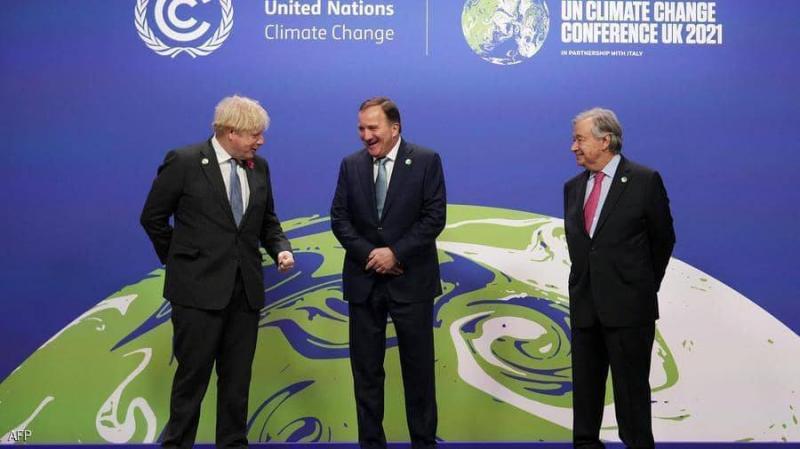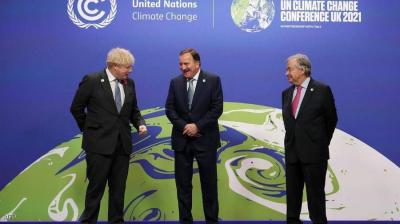World leaders gathered in Glasgow on Monday to participate in the climate summit "COP26," amidst calls to avoid the most catastrophic effects of climate change on the planet. Notably absent from the summit are the leaders of Russia and China, the largest sources of carbon emissions. "COP26" will officially open in the Scottish city following a lack of agreement among the G20 economies regarding a commitment to achieve net-zero carbon emissions by 2050, a deadline widely cited as essential to preventing more severe global warming.
The summit will feature two days of speeches from world leaders, followed by technical negotiations, so no deals are expected to be struck until close to the event’s conclusion on November 12 or even afterward. Instead, discussions in Rome only acknowledged the "major importance" of halting net emissions "by mid-century or near it." The G20 summit did not establish a timeline for phasing out coal and watered down promises to reduce methane emissions, which are several times more potent than carbon dioxide.
Swedish activist Greta Thunberg tweeted: "As citizens around the world, we urge you to face the climate emergency," adding, "Not next year. Not next month. Now." World leaders will discuss their records on climate change and, in some cases, make new commitments during two weeks of negotiations.
UK Prime Minister Boris Johnson said at the opening ceremony, according to excerpts from his speech: "Humanity has long since run out of time on climate change. It is one minute to midnight, and we need to act now." He added, "If we do not take climate change seriously today, it will be too late for our children to do so tomorrow."
COP26, which was delayed by a year due to the coronavirus pandemic, aims to keep the goal of limiting global warming to 1.5 degrees Celsius (2.7 degrees Fahrenheit) above pre-industrial levels, a threshold scientists say will avert the most devastating consequences. The conference needs to secure more ambitious commitments for reducing emissions, funding billions for climate-related projects in developing countries, and finalizing the rules for implementing the 2015 Paris Agreement, which nearly 200 countries signed.
Current commitments would allow emissions to raise the planet's average surface temperature by 2.7 degrees Celsius this century, which the United Nations warns would increase the devastation already caused by climate change by intensifying storms, exposing more people to deadly heat and flooding, and raising sea levels, while destroying natural habitats.




